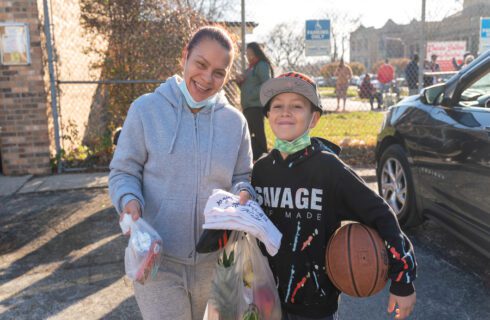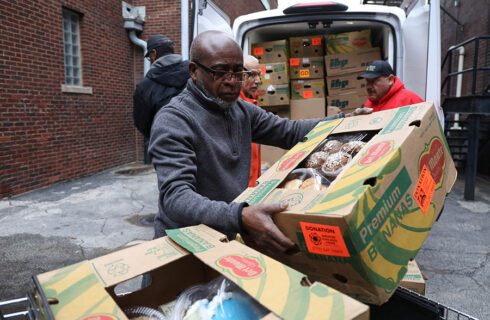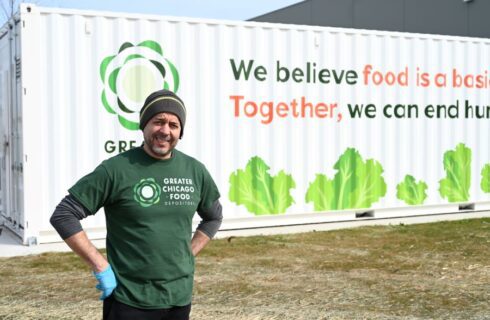Pop-up food distributions on Chicago's South and West Sides have allowed communities to face the unprecedented need caused by COVID-19.
Predominantly Black and Brown communities, like Roseland on the city's Far South Side, have long experienced the disproportionate impact of poverty and food insecurity. This has only worsened with the economic fallout of the pandemic. This summer, several Roseland businesses also closed as a result of the civil unrest following the police killing of George Floyd in Minneapolis. These closures left many residents with limited access to food. The Greater Chicago Food Depository quickly teamed up with Metropolitan Family Services to offer a weekly food distribution to support those in need. In the parking lot of the Dollar Tree store on 103rd Street, volunteers served fresh produce, meat and other groceries to about 700 households each week."The beauty of what's happening here is there's still vibrancy in the community, there's resiliency, and residents are coming together," said Nicole Robinson, the Food Depository's vice president of community impact. "They're standing shoulder to shoulder with community members distributing food. That's the hope I have about all of this."Though the weekly distribution has ended, the Food Depository continues to partner with Metropolitan Family Services to provide food at the Roseland Dollar Tree every third Friday of the month. Find the food distribution nearest you. Learn more about our COVID-19 response.
Share This Post



